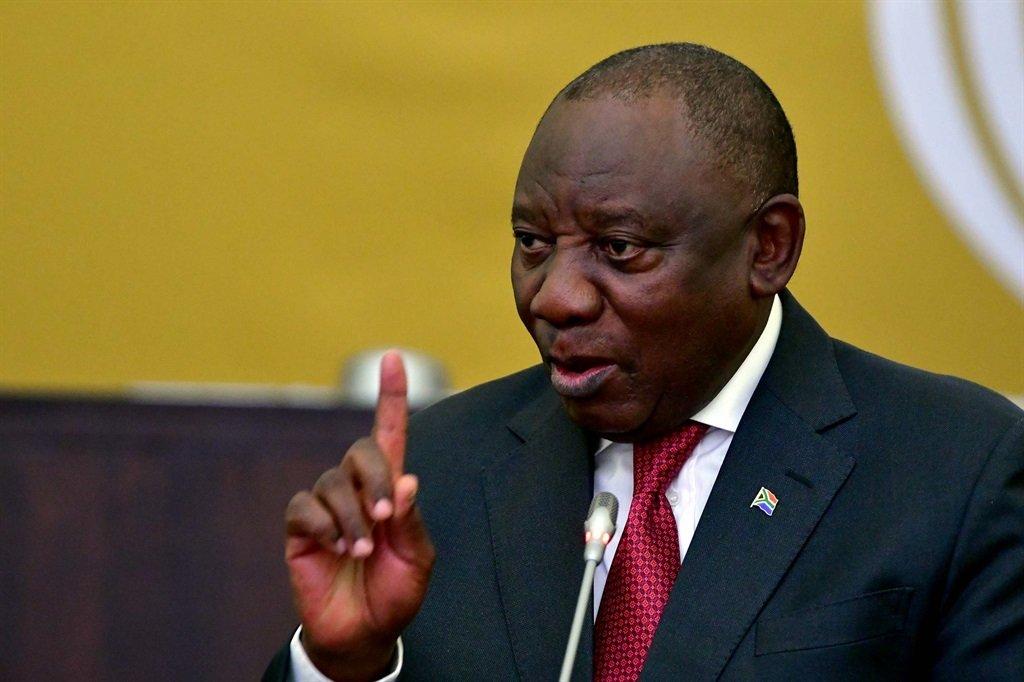Africa-Press – South-Africa. Several former Constitutional Court justices are among the candidates nominated by political parties for an independent three-person panel to determine whether there is a prima facie case for President Cyril Ramaphosa’s impeachment over the Phala Phala scandal.
By the time the nominations closed at 16:00 on Thursday, National Assembly Speaker Nosiviwe Mapisa-Nqakula had received 17 candidates to serve on the panel. The names came from 12 of the 14 parties represented in Parliament.
Parliament didn’t release the names of the nominees, but some parties made it known who they nominated. And the names include some juristic heavyweights.
Retired Constitutional Court Justice Yvonne Mokgoro has been nominated by the ANC, DA and ATM.
The ANC and DA also nominated former Deputy Chief Justice Dikgang Moseneke.
The ANC nominated retired Constitutional Court Justice Justice Sisi Khampepe, and the DA nominated former Deputy Judge President of the Western Cape High Court, Jeanette Traverso.
The ATM nominated former Chief Justice Mogoeng Mogoeng and retired Judge President of the Gauteng High Court, Bernard Ngoepe.
According to a statement from Parliament, of the 17 persons nominated, 12 are retired and serving judges, and five are advocates of the high court, senior counsels and law academics.
5 takeouts on the Section 89 process playing out in Parliament in a bid to unseat Ramaphosa
The rules for the Section 89 process require that the panel consists of three fit and proper, competent, experienced and respected South African citizens, which may include a judge, who collectively possesses the necessary legal and other competencies and experience to perform the preliminary assessment of the motion.
If a judge is to be appointed, the Speaker must consult with the Chief Justice.
The Speaker has to appoint the panel after giving political parties represented in the Assembly a reasonable opportunity to put forward nominees and after she has given due consideration to all persons nominated.
“After a careful consideration of the names at her disposal, the Speaker will appoint the panel to begin the probe,” reads the statement.
The independent panel has 30 days to conduct a preliminary assessment of the proposed motion and make a recommendation to the Speaker on whether sufficient evidence exists to show the president committed any of the violations specified in the motion.
Mapisa-Nqakula refers ATM motion for Phala Phala probe to an independent panel
It must provide Ramaphosa immediately with copies of all information available to it, relating to the inquiry, and provide him with a reasonable opportunity to respond, in writing, to all relevant allegations against him.
The National Assembly will then have to pass the motion with a simple majority for the impeachment process to proceed. Given the ANC’s current stance, this seems unlikely.
When Ramaphosa refused to answer a question on Phala Phala during Tuesday’s question session in the National Assembly, he pledged to give his full cooperation to the Section 89 process.
The motion was brought by ATM leader Vuyolwethu Zungula.
“It is common cause that [former spy boss] Mr Arthur Fraser has submitted evidence at the Rosebank police station, where the president is implicated in serious crimes, including bribery; money laundering; kidnapping; breaching of customs and excise laws; breaching of SARS regulations; breaching the Prevention of Organised Crime Act; defeating the ends of justice, to mention but a few,” reads the motion.
The ATM also contended that Ramaphosa violated Section 83(b) of the Constitution, which enjoins him, as head of state, to uphold, defend and respect the Constitution as the supreme law of the Republic.
The party also argued that Ramaphosa violated Section 96(2)(a) of the Constitution, which states that Cabinet members and deputy ministers may not “undertake any other paid work”.
For More News And Analysis About South-Africa Follow Africa-Press






